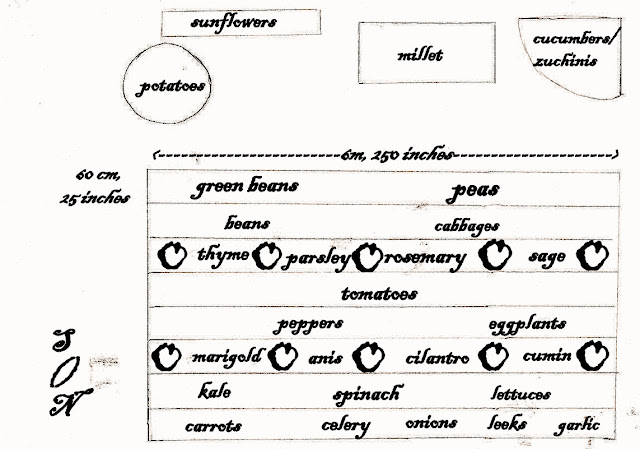I do like the Jewish singing of prayers and ritual over the meal as the day draws to a close, and we start at sundown the observance of the Sunday, to set it apart for the Lord. I like the words in Hebrew to remind me of the times when Jesus was living, when maybe Mary taught him this prayers, when he had been praising the Lord before the miracle of loaves and fishes, or when he was celebrating the first Mass in the last Supper.
We do reserve the dinning room table for such celebrations, and as we sit down the wife recites the Blessing over candles. It is customary to light the candles, draw's one hands over the flames three times, and then cover one's eyes while the blessing is said. The Shabbat melody is simple, there is an example following:
Candle lighting
Candle lighting
Transliteration: Barukh ata Adonai Eloheinu melekh ha‑olam, asher kid'shanu b'mitzvotav v'tzivanu l'hadlik ner shel yom tov.
Translation: "Blessed are You, Lord, our God, King of the universe, Who has sanctified us with His commandments and commanded us to light the holiday candle[s]."
Translation: "Blessed are You, Lord, our God, King of the universe, Who has sanctified us with His commandments and commanded us to light the holiday candle[s]."
After that the husband does sing one blessing for the children, the song is the same one as Tevye's family sings in the movie The Fiddler on the Roof. He goes around the table and puts his hand in the forehead of each of the comensals, one at a time, while the song is sung, to bless them.
May the Lord protect and defend you.
May He always shield you from shame.
May you come to be In Israel a shining name.
May you be like Ruth and like Esther. May you be deserving of praise.
Strengthen them, Oh Lord, And keep them from the strangers' ways.
May God bless you and grant you long lives. (May the Lord fulfill our Sabbath prayer for you.)
May God make you good mothers and wives. (May He send you husbands who will care for you.)
May the Lord protect and defend you.
May the Lord preserve you from pain.
Favor them, Oh Lord, with happiness and peace. Oh, hear our Sabbath prayer. Amen.
In our family we skip the Shalom Aleychem, and go straight to the washing of hands, blessing of wine and bread.
N'tilat Yadayim (Ritual washing of hands)
Transliteration: Barukh ata Adonai Eloheinu melekh ha‑olam, asher kid'shanu b'mitzvotav v'tzivanu al n'tilat yadayim.
Translation: "Blessed are You, Lord, our God, King of the universe, Who has sanctified us with His commandments and commanded us concerning washing of hands."
Translation: "Blessed are You, Lord, our God, King of the universe, Who has sanctified us with His commandments and commanded us concerning washing of hands."
Before drinking wine – Ha-Gafen
Transliteration: Barukh ata Adonai Eloheinu Melekh ha‑olam, bo're p'ri ha‑gafen.
Translation: "Blessed are You, Lord, our God, King of the universe, Who creates the fruit of the vine."
Transliteration: Barukh ata Adonai Eloheinu melekh ha‑olam, ha‑motzi lehem min ha‑aretz.
Translation: "Blessed are You, Lord, our God, King of the universe, Who brings forth bread from the earth."
Translation: "Blessed are You, Lord, our God, King of the universe, Who brings forth bread from the earth."
Finally after the meal we sing the Berich Rachamana, and recite the last blessing in Spanish.
Berich rachamana Malka de'Alma marey dehay pita (x2)
Translation: You are the source of life for all that is and your blessing flows through me.(x2)
Castilian (Spanish): | English: |
Bendigamos Bendigamos al Altísimo, Al Señor que nos crió, Démosle agradecimiento Por los bienes que nos dió. Alabado sea su Santo Nombre, Porque siempre nos apiadó. Load al Señor que es bueno, Que para siempre su merced. Bendigamos al Altísimo, Por su Ley primeramente, Que liga a nuestra raza Con el cielo continuamente, Alabado sea su Santo Nombre, Porque siempre nos apiadó. Load al Senor que es bueno, Que para siempre su merced. Bendigamos al Altísimo, Por el pan segundamente, Y también por los manjares Que comimos juntamente. Pues comimos y bebimos alegremente Su merced nunca nos faltó. Load al Señor que es bueno, Que para siempre su merced. Bendita sea la casa esta, El hogar de su presencia, Donde guardamos su fiesta, Con alegría y permanencia. Alabado sea su Santo Nombre, Porque siempre nos apiadó. Load al Señor que es bueno, Que para siempre su merced. | Let us bless Let us bless the Most High The Lord who raised us, Let us give him thanks For the good things which he has given us. Praised be his Holy Name, Because he always took pity on us. Praise the Lord, for he is good, For his mercy is everlasting. Let us bless the Most High First for his Law, Which binds our race With heaven continually, Praised be his Holy Name, Because he always took pity on us. Praise the Lord, for he is good, For his mercy is everlasting. Let us bless the Most High, Secondly for the bread And also for the foods Which we have eaten together. For we have eaten and drunk happily His mercy has never failed us. Praise the Lord, for he is good, For his mercy is everlasting. Blessed be this house, The home of his presence, Where we keep his feast, With happiness and permanence. Praised be his Holy Name, Because he always took pity on us. Praise the Lord, for he is good, For his mercy is everlasting. |
















